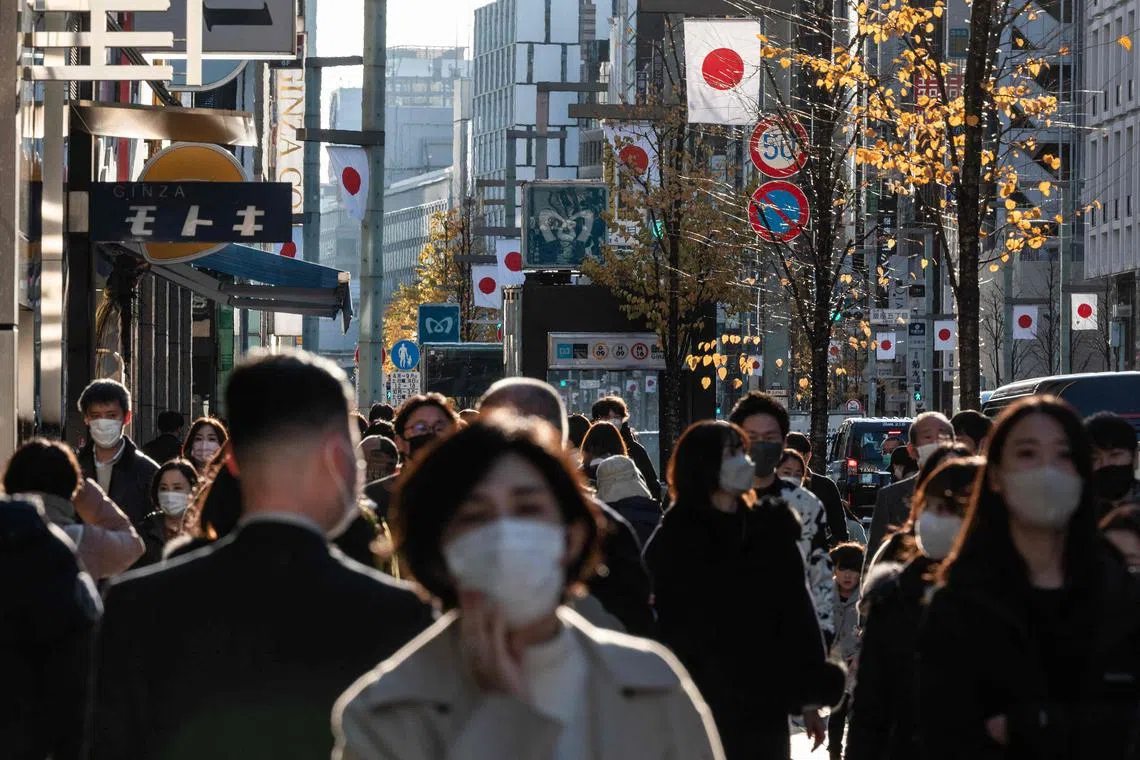Tokyo inflation hits 4%, pointing to stronger-than-thought trend
Sign up now: Get ST's newsletters delivered to your inbox

Prices in Tokyo have exceeded the Bank of Japan’s 2 per cent price target for seven months.
PHOTO: AFP
TOKYO - Tokyo’s inflation outpaced forecasts to hit 4 per cent for the first time since 1982, suggesting the underlying price trend is stronger than thought by economists, a factor that could further fuel speculation that the Bank of Japan (BOJ) will adjust policy again.
Consumer prices excluding fresh food climbed 4 per cent in the Japanese capital in December as food and energy costs continued to mount and a majority of tracked items became more expensive, according to the Ministry of Internal Affairs on Tuesday. Economists had forecast a 3.8 per cent rise.
Tokyo’s inflation is a leading indicator of the nationwide trend, and the faster pace suggests Japan’s price growth was also likely to have accelerated in December. The figures are the last key price data before the central bank meets again next week to decide on policy and update its inflation forecasts.
While the central bank expects inflation to be close to a peak, the continued acceleration suggests prices are running hotter than the BOJ’s projections. The latest Tokyo figures are likely to keep economists and investors on high alert over more possible policy changes by the central bank.
“Inflation is spreading,” said Mr Taro Saito, head of economic research at NLI Research Institute. “Given some service prices are rising, like the cost of taxis, it’s getting hard to fully agree with the BOJ’s argument that inflation is happening only mainly due to import costs.”
Of the 522 items included in core consumer price index figures, 376 items showed a price increase, according to a Ministry of Internal Affairs official.
Processed food prices jumped 7.5 per cent compared with the previous year for the fastest pace of increase since 1976. Food costs will continue to rise in 2023, following 2022’s record price increases of 20,822 products, according to a Teikoku Databank survey. The data company says that at least 7,100 grocery items are expected to see an increase in price in 2023, especially processed food.
Prices in Tokyo have exceeded the central bank’s 2 per cent price target for seven months, but that is still unlikely to convince BOJ governor Haruhiko Kuroda that the trend will stick yet. The bank expects prices to cool below 2 per cent next fiscal year.
Mr Kuroda has said the central bank will continue with monetary easing until Japan achieves its inflation goal on a sustainable basis, supported by stronger wage growth.
A separate data report showed that household spending declined for the first time in three months in November, indicating that the inflationary wave may be starting to eat into household spending.
Still, a ministry official said the slump was largely due to a warmer-than-usual November that discouraged consumers from buying winter items. Inflation was not the largest factor, the official said. BLOOMBERG


